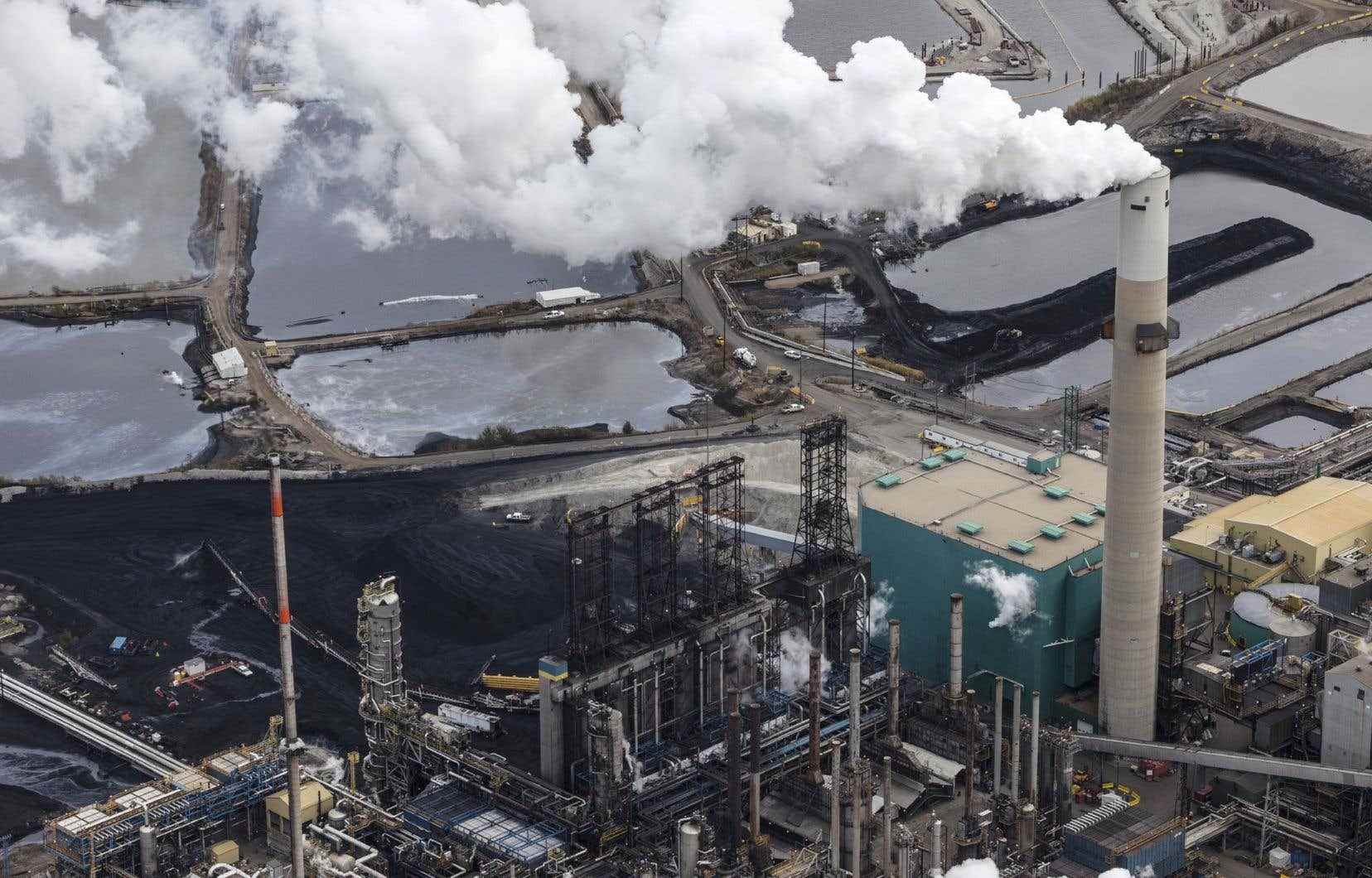The year 2022 will go down in history for the oil “super majors”: the insatiable hunger for oil and gas, combined with the war in Ukraine, has given them record profits, and everything indicates that the profits will be there. you in 2023 too.
Four of the five majors (Shell, Chevron, ExxonMobil, TotalEnergies) broke their net profit record in 2022, while BP set a record for profit excluding exceptional items. A total of $151 billion in net profit was raked in in 2022. Adjusted profits, which better reflect profitability by excluding accounting losses caused by withdrawals from Russia, are closer to $200 billion.
Enough to attract the wrath of governments and NGOs, in the midst of an energy and climate crisis. On Tuesday, United States President Joe Biden called these profits “scandalous”.
Companies have taken full advantage of the escalation in prices, with a barrel of Brent, the benchmark for black gold, approaching 140 dollars in March 2022 and gas at 350 euros per megawatt hour last summer in Europe, 15 times the usual price.
Prices have since fallen, but in 2023 “we may have other peaks because the war in Ukraine is far from over,” warns Adi Imsirovic, a researcher at the Oxford Institute for Energy Studies.
Despite uncertainties for the global economy, the Organization of the Petroleum Exporting Countries (OPEC) does not expect a drop in demand and on the contrary anticipates growth in 2023 (+2.2 million barrels/day in 2023 after +2.5 mb/d in 2022).
The manna amassed by the majors is currently creating a headache in the political class throughout the West, against a backdrop of the cost of living crisis.
On the Old Continent as in the United States, lighting a boiler, baking bread or driving on diesel has become a heavy expense for many households and businesses.
“I’m doing my part to lower prices, it’s time for Big Oil to do its part”, had already carried away Joe Biden last week.
In France, the announcement on Wednesday of the profits of TotalEnergies – at 20.5 billion dollars – further fueled the debate to further tax these “superprofits”.
In Great Britain, the government introduced a tax on exceptional energy profits in May 2022, as did the European Union at the end of September, with a “temporary solidarity contribution”, which was challenged by Exxon.
“What we need right now is more supply. Instead, what has been put in place is a penalty on the energy sector as a whole,” lamented Darren Woods, CEO of Exxon.
And the grants?
If the rebound in demand after the COVID-19 pandemic had already benefited the majors in 2021, everything got carried away in 2022: prices soared due to the conflict in Ukraine, Western sanctions targeting Moscow and the decrease Russian exports.
Oil companies are certainly investing more and more in solar, wind and other renewable energies “but not as much as the amount they pay to shareholders”, underlines David Elmes, professor at the Warwick Business School, while BP is slowing down its energy transition.
These multinationals have also benefited from having bet on “high value-added assets”, such as liquefied natural gas (LNG) projects, notes Moez Ajmi, consultant at EY.
“The exorbitant prices driven by European purchases of LNG to replace Russian supplies have helped”, abounds Adi Imsirovic.
And now ? “The prices will in my opinion increase because of the oil embargo imposed by the West on Russia […] therefore these companies would be as profitable in 2023 as in 2022”, continues Moez Ajmi.
Especially since the companies will be able to count on a demand “clearly still there, especially with the renunciation of the zero COVID policy in China”.
However, this demand for gas and oil remains supported by the tens of billions of subsidies for consumer bills, which “only prolong the crisis”, estimates Adi Imsirovic.
Wanting to “subsidize fossil fuels […] demand continues to rise instead of fall” while “the best cure for high prices is high prices”, he adds.
For the researcher, EU governments should first be content to help “the poorest”.
